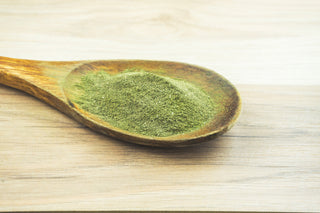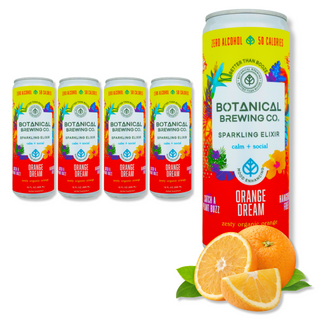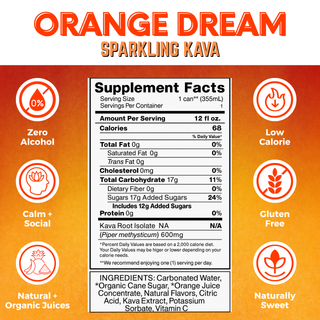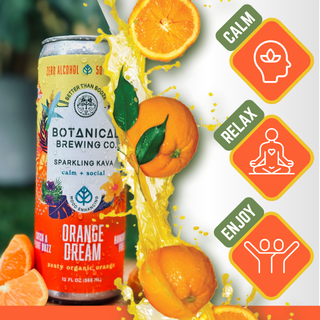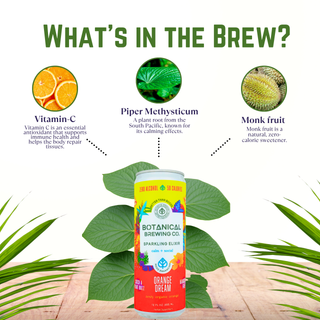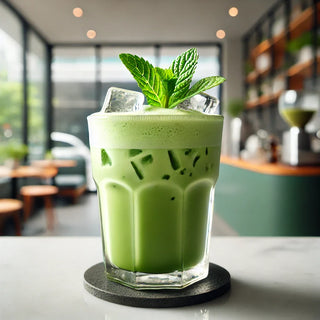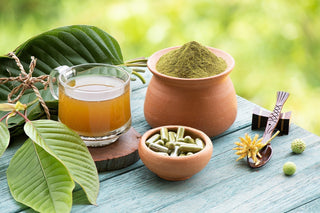Is Kava Legal? Kava Legalities
Kava, a traditional Pacific Island beverage made from the roots of the kava plant, has gained increasing popularity globally as an alternative to alcohol or as a natural remedy for anxiety and insomnia. However, with its rising use, the question "is kava legal?" becomes increasingly relevant. The legal status of kava varies across different regions, and understanding the regulations surrounding its use is crucial.
The Food and Drug Administration (FDA) plays a significant role in determining the legality of kava in the United States. As more people turn to kava for its purported benefits, it is essential to navigate the legal landscape carefully to avoid potential legal consequences.
Legal Status of Kava in the United States
The legal status of kava in the United States is complex, with varying regulations at the federal and state levels. At the federal level, kava is not classified as a controlled substance, meaning it is kava legal in the US for general consumption. However, several states have implemented restrictions or bans on its use due to potential health concerns and regulatory issues.
- States where kava is legal: Florida, Hawaii, Illinois, Kansas, Missouri, New Mexico, Ohio, Oklahoma, Oregon, Texas, and Washington
- States with restrictions on kava: Arkansas, Colorado, Indiana, Minnesota, New Jersey, North Carolina, Rhode Island, and Utah
- States where kava is banned: Wisconsin
Some states have raised concerns about the potential risks associated with kava consumption, particularly when not consumed in its traditional preparation. These concerns have led to restrictions or bans to protect public health and safety.
Legal Status of Kava in Other Countries

The kava legal status varies significantly across different regions of the world, reflecting diverse cultural attitudes and regulatory frameworks. In Europe, kava is generally recognized as a dietary supplement, but some countries have implemented restrictions or bans due to safety concerns.
In Asia, the legal status of kava is mixed, with some countries embracing its traditional use, while others have imposed restrictions or bans. In Oceania, where kava has deep cultural roots, its consumption is widely accepted and legal in many Pacific Island nations.
Here are some examples of the legal status of kava in different countries:
- Legal: Fiji, Vanuatu, Tonga, Samoa, New Zealand
- Restricted: Germany, United Kingdom, Canada
- Banned: Switzerland, France, Poland
The varying legal approaches to kava stem from factors such as cultural acceptance, traditional use, and regulatory frameworks governing dietary supplements and herbal products in each country.
Potential Health Concerns and Regulatory Challenges
While kava has been used traditionally for centuries, its increasing popularity as an herbal supplement and at kava bars has raised concerns about potential side effects and safety. Some of the reported side effects associated with kava consumption include:
- Liver toxicity
- Dermatological reactions
- Impaired motor function
- Interaction with medications
Regulatory challenges exist in ensuring quality control and safety standards for kava products. As an herbal supplement, kava is not subject to the same rigorous testing and approval processes as pharmaceutical drugs, making it difficult to guarantee consistent potency, purity, and safety.
The debate around the legal status of kava often centers on weighing its potential risks against its purported benefits. While some advocates argue for its legalization and wider acceptance as a natural remedy, others remain cautious due to the reported health concerns and lack of comprehensive regulatory oversight.
Responsible Use and Acquiring Legal Kava Products

Regardless of the legal status of kava in a particular region, responsible use and moderation are paramount when consuming this traditional beverage. Overconsumption or improper preparation of kava root can potentially lead to adverse effects and health risks.
When acquiring kava products, it is crucial to prioritize legality and quality. Look for reputable suppliers who follow strict quality control measures and provide transparency about the sourcing and processing of the kava root. Consulting with healthcare professionals or legal experts can also provide valuable guidance on the appropriate use and acquisition of kava within your specific jurisdiction.
For those interested in trying kava, consider the following tips:
- Research local laws and regulations regarding the sale and consumption of kava products.
- Purchase from licensed and reputable vendors or kava bars that adhere to safety standards.
- Start with smaller doses and monitor your body's response before increasing consumption.
- Avoid combining kava with alcohol or other drugs that may increase the risk of adverse effects.
By exercising caution, moderation, and seeking professional advice when necessary, individuals can make informed decisions about whether and how to responsibly enjoy drinks kava within the confines of the law.
Kava Bars and Commercialization
The question "is kava legal?" becomes increasingly relevant as kava bars gain popularity across the United States. These social hubs, serving traditional kava beverages from the Pacific islands, operate in a legal gray area. While kava itself is not a controlled substance at the federal level, its legality and regulation vary from state to state.
Operating a kava bar requires navigating a complex web of local laws and ordinances. Some states mandate specific licenses or permits for establishments serving kava, while others have outright bans or restrictions on its sale and consumption. Failure to comply with these regulations can result in hefty fines or even criminal charges.
Furthermore, the legal distinction between traditional kava preparations and commercially available kava products is murky. While kava roots used in traditional ceremonies may be permissible, certain kava extracts or derivatives could potentially face stricter regulations or outright prohibition due to their concentrated nature or potential for abuse.
Regulatory Outlook and Future Considerations

As the popularity of kava continues to rise, so too does the scrutiny surrounding its legal status. The question "is kava legal in US?" is a complex one, with ongoing research and discussions shaping the regulatory landscape.
- Several advocacy groups and traditional Pacific Islander communities are actively lobbying for a more permissive stance on kava, citing its cultural significance and potential therapeutic benefits.
- Proponents argue that kava, when consumed responsibly, can offer a safer alternative to alcohol, with anti-anxiety and muscle-relaxant properties.
- However, concerns have been raised about the potential for abuse, addiction, and liver toxicity associated with long-term or excessive kava use.
- Regulatory bodies are grappling with how to strike a balance between preserving cultural traditions, promoting public health, and preventing the misuse of kava products.
As research continues to shed light on the risks and benefits of kava consumption, its legal status in the United States remains in flux. A nuanced and evidence-based approach will be crucial in shaping policies that respect cultural traditions while safeguarding public health and safety.
Conclusion
In conclusion, the legal status of kava varies significantly across different regions, reflecting diverse cultural attitudes, regulatory frameworks, and potential health concerns. While kava is legal for general consumption in some areas, other regions have implemented restrictions or outright bans due to safety considerations.
When considering consuming kava or purchasing a kava product, it is crucial to stay informed about the specific laws and regulations in your local area. Compliance with relevant laws is essential to avoid potential legal consequences. Additionally, seeking advice from healthcare professionals, particularly if you have pre-existing medical conditions, can help you make informed decisions about the responsible use of kava.
As the popularity of kava continues to grow, it is advisable to rely on credible sources and expert guidance when evaluating its potential risks and benefits. By staying informed and exercising caution, individuals can make responsible choices about whether and how to incorporate kava into their lives while adhering to legal requirements.


